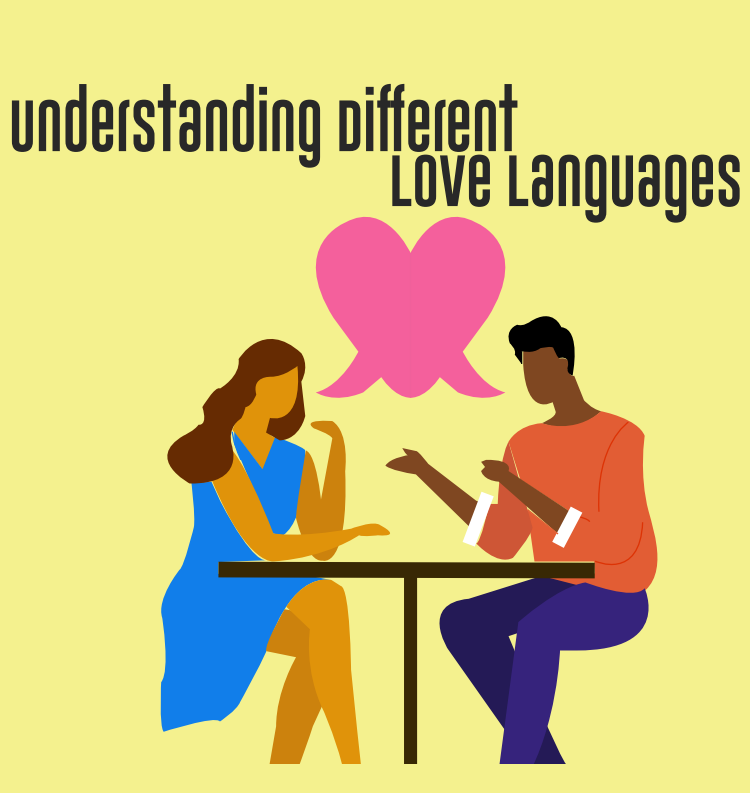14 Days of Love Day 7: Understanding Love Languages
February 7, 2020
In 1992, author and talk show host Gary Chapman introduced the concept of love languages in his book “The Five Love Languages: How to Express Heartfelt Commitment to Your Mate.” The book outlined five ways romantic partners can express and receive love — through acts of service, receiving gifts, quality time, words of affirmation or physical touch — and claimed everyone has one primary and one secondary language.
The book skyrocketed in popularity, selling nearly 163,000 copies by 1995, and has been on the New York Times bestseller list since 2009. As a result, the five love languages are now firmly ingrained in popular culture — a simple Google search for “love languages” returns hundreds of thousands of quizzes, articles and Tweets for discovering, analyzing or joking about your language.
While the concept of love languages is based on Chapman’s experience counseling and not scientific research, the idea may have some merit. It offers a different way of looking at romantic communication.
“Love languages play an important role in relationships because [they] help a person realize what they want and don’t want,” sophomore Alyssa Rodriguez said.
People who receive love through acts of service feel most loved when their significant other spends time and energy doing things for them. They believe that actions speak louder than words.
If someone’s love language is receiving gifts, they feel most appreciated when they are given a meaningful, thoughtful gift. This does not mean the gift must be expensive; people with this love language desire gifts because they view them as symbols of their partner’s love, not because of the material value.
Those who receive love through quality time feel most loved when they have their partner’s undivided attention, with no distractions like T.V.s or phones. When their partner cancels dates or it seems like their partner isn’t present in the moment, they can feel hurt and unloved, more so than others with different love languages.
“I never paid attention to anything else when she spoke to me. I always made sure that I told her how I felt about her,” sophomore Phil Brooks said. “She chose not to express affection in that way, but anytime she did something, she thought about how I would react.”
Those who receive love through words of affirmation feel most appreciated when their partner uses words to express affection. Compliments — even just an “Your outfit looks good today” — and “I love you” go a long way. Negative and critical comments may affect them more than others with different love languages.
If someone’s love language is physical touch, hugs, kisses and physical contact are incredibly important to feeling loved. They feel most connected and secure in a relationship with emotional and physical connection.
“With a past relationship I’ve had, the guy showed his affection by always wanting to hug or be all about PDA, which made me realize I hate it,” Rodriguez said.
According to Chapman, if couples do not “speak” the same language — for example, if one person expresses his or her love through physical touch but the other person experiences love through receiving gifts — one or both members of the relationship could be left feeling unloved because they are not acknowledging the other person’s language.
“When there are two people who express love differently, affection can be misinterpreted for something else,” Brooks said.
So next time you feel underappreciated in your relationship or think you are giving more than you are receiving, think about what makes you feel loved — maybe you and your partner are just speaking different languages.











